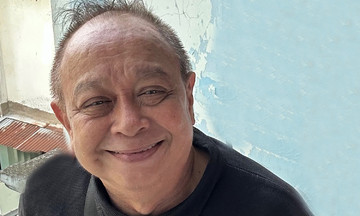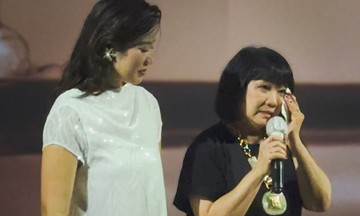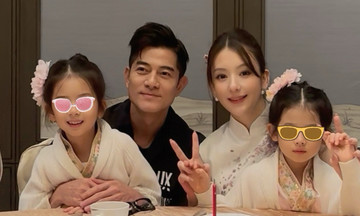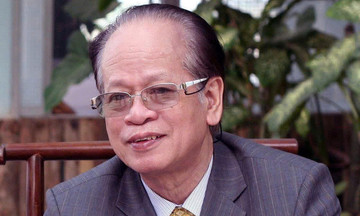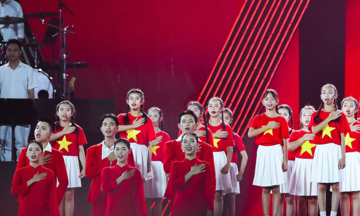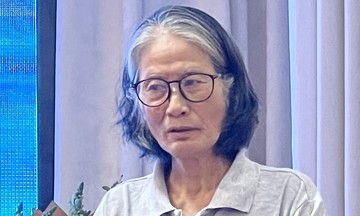During wartime, personal love and happiness were often put aside for the common goal of national independence. Many young couples endured separation, their love expressed through heartfelt letters. These stories found their way into literature and poetry, inspiring numerous artists. In 1968, during his final year at Hanoi Pedagogical University, Bui Cong Minh wrote the poem "Day and Night" after hearing a classmate read a love letter from her sweetheart at the front. He captured the longing in the distance "So long and so far," "Days and nights apart," emphasizing the yearning. At the battlefield, the soldier was "on the march," while back home, the young woman diligently worked on her lesson plans.
Despite the distance, their love "burned bright," their thoughts with each other even as they remained dedicated to their duties. While the young man fought the enemy, his beloved was also a warrior, spreading knowledge. Minh used contrasting images, "His artillery on the high hill," "Her lectern in the deep bunker," to depict their shared commitment to both fighting and building their nation. The recurring phrase "Day and night we are together" affirms their bond, regardless of time or place.
* The poem "Day and Night"
In 1972, composer Phan Huynh Dieu came across the poem in the "Military Arts and Literature" magazine. Coincidentally, his son, a combat engineer, was also in love with a teacher in Hanoi. He decided to set the poem to music as a gift for his son. Dieu kept most of the original verses, only adding the final line: "Day and night in battle, you and I live close together." He also made a few adjustments, changing "mong nho" (longing) to "thuong nho" (yearning), "Van chay lua tinh yeu" (Still burning with love) to "Dot chay lua tinh yeu" (Igniting the flames of love), and "Nhung dem ngay chien dau" (Those days and nights of fighting) to "Nhung nam dai chien dau" (Those long years of fighting).
Artist Phan Huan recorded the song for broadcast on the Voice of Vietnam radio station, and it was also performed to boost the morale of soldiers at the front. The song quickly became beloved by many, considered a deeply moving love song from the years of resistance against the Americans.
Phan Huynh Dieu believed that poetry and music were like twins, each helping the other soar. In "Day and Night March," as in many of his works based on love poems, he portrayed the powerful resilience of love, transcending even the harshest circumstances. "Possessions and wealth are fleeting, but love between people, love for life, homeland, and family are eternal and give life its value," he once said.
In an article in the "Military Arts and Literature" magazine, composer Doan Nho noted: "Phan Huynh Dieu achieved something remarkable, transforming a love song into a march." While expressing a wartime romance through music, the melody also had the power to uplift soldiers on the battlefield and those on the home front during the war years.
Over the past 50 years, the song has been performed by numerous singers, notably Tran Hieu, Trung Duc, Trong Tan, Anh Tho, and the duo Minh Quan. Beyond the familiar versions, younger artists like Pham Anh Khoa and the Ngu Cung band have performed rock interpretations, creating a powerful new experience for listeners.
As the nation commemorates the 80th anniversary of the August Revolution and National Day, the song has seen a resurgence in popularity. On TikTok, excerpts of the song accompany historical footage, vividly evoking the atmosphere of that era.
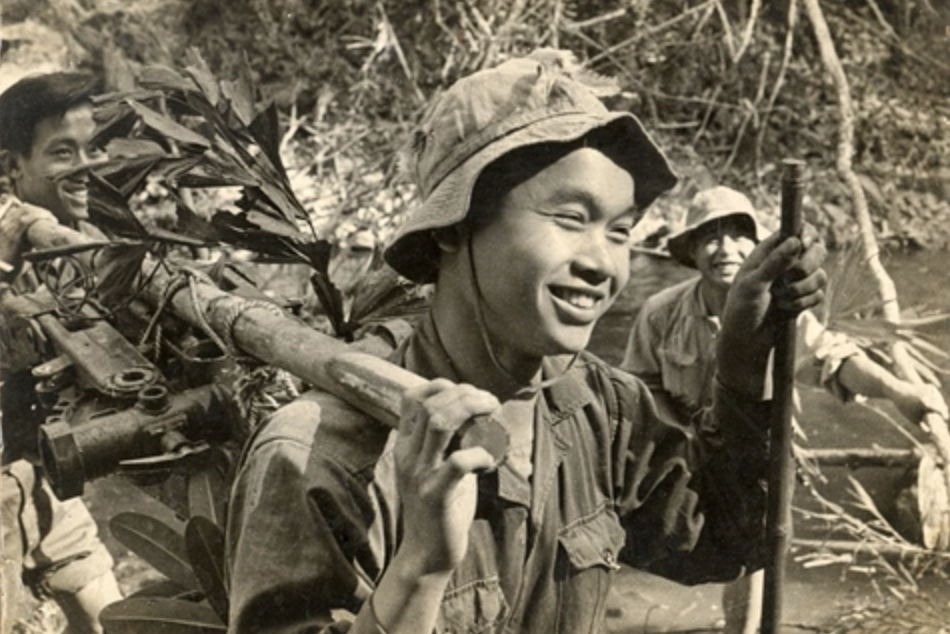 |
The photo "Youth in Truong Son" captures the smiling faces of soldiers on the march, expressing their faith in victory. Photo: Photographer Doan Cong Tinh |
Born in 1924 in Da Nang, Phan Huynh Dieu was known as the "Golden Bird of Vietnamese music." He was awarded the Ho Chi Minh Prize for Literature and Arts for his contributions to Vietnamese music in the 20th century. He began his musical career in 1940, gaining recognition for his song "Liberation Army March" (1945). During the resistance against the French, he joined the army, serving in Interzone 5. During this time, he composed songs like "Remembering President Ho" and "My Hometown in the South."
After 1975, Phan Huynh Dieu joined the Ho Chi Minh City Music Association. He composed and published over 100 works, more than half of which were based on poems, including "Night Stars," "The Konia Tree's Shadow," "You're at the River's Source, I'm at its Mouth," "Threads of Memory, Threads of Longing," "At Two Ends of Longing," "Where Are You Tonight," and "Boat and Sea." He also wrote several children's songs such as "The Tiny Trumpet Band" and "Remembering Uncle Ho." He passed away at the end of June 2015, at the age of 91.
Poet Bui Cong Minh, born in 1947 in Da Nang, was a lecturer in the Literature Department at Hanoi Pedagogical University. He served as President of the Da Nang Literature and Arts Associations from 2009 to 2014.
Phuong Linh




